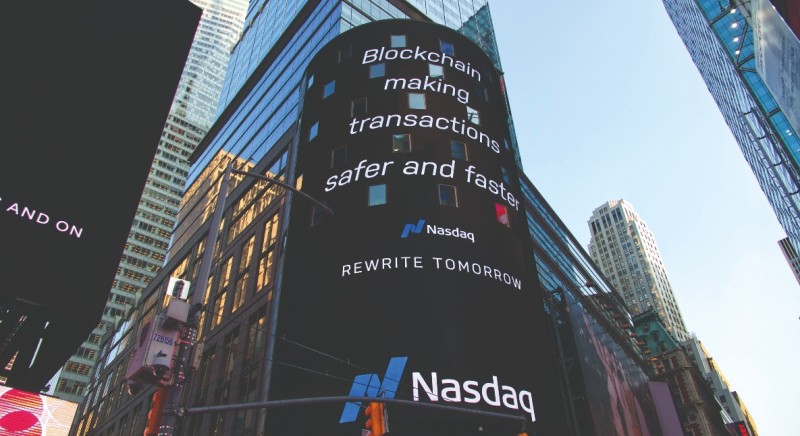In its early years, distributed ledger technology — also known as blockchain — was only recognised for powering the mechanics behind cryptocurrencies like Bitcoin. It was created by the pseudonymous Satoshi Nakamoto in 2008, based on previous work by Stuart Haber and W. Scott Stornetta. Blockchain technology has since taken on a life of its own, increasingly detached from cryptocurrencies and highlighted for its potential use in practical business operations.
Among other things, blockchain technology could reduce costs in settlement, administration and greater liquidity via tokenisation. It also added security thanks to its immutability, improved efficiency and enhanced transparency.
Many have touted blockchain as a game changer that could revolutionise financial institutions and banking systems. DBS Group Holdings, JP Morgan Chase, and Temasek founded Partior, a blockchain-based technology provider for payment clearing and settlement. The latter has its roots in Project Ubin, a collaboration between the Monetary Authority of Singapore (MAS) and the financial industry to explore the use of blockchain and distributed ledger technology for clearing and settlement services. Project Ubin’s phase one started in 2016 when the MAS partnered with a consortium of financial institutions on a project to conduct interbank payments using blockchain technology. The five-year practical experimentation ended in 2020 upon the successful development of the network prototype.
The platform began its first pilot with the participating banks in May, achieving end-to-end settlements in the Singapore dollar and US dollar in fewer than 120 seconds. It is made possible using an “atomic” model, replacing the existing sequential operational approach to payment settlement. The reduction in settlement time can free up liquidity and reduce settlement risk.
Recognising the potential of blockchain, central banks have started establishing innovation arms or investments in crypto and blockchain-related companies. Analytics company Blockdata estimates that 55 of the top 100 banks invested directly or through subsidiaries last year in crypto and blockchain-related companies. Active investors include Barclays, Citigroup, Goldman Sachs and JP Morgan Chase. Standard Chartered’s US$380 million ($530 million) and BNY Mellon are the most significant funding rounds.
These investments are for long-term benefits. A study by Juniper Research states that blockchain can help banks realise savings on cross-border settlement transactions of more than US$10 billion in 2030, from US$301 million in 2021.
See also: Thales steps up Singapore investments across advanced manufacturing and digital tech
Preparing for a blockchain future
Blockchain implementation in a cross-border settlement could benefit participants by leveraging improved payment transparency and traceability. However, FPT Software’s executive director of financial services solutions group Thomas Nguyen Hoang Trung says banking, financial services, and insurance (BFSI) players in Asian countries are reluctant to deploy this blockchain technology. The reason? The speed and processing capabilities of the technology are not at the level that banks are looking for.
See also: Local digital asset exchange DigiFT offers tokenised access to Hines’ US$6 bil real estate portfolio
“To get there, it may take many more years of improvement. This is why many companies are gradually investing in the technology,” says Nguyen. The Vietnam-based IT services provider now hopes to nudge those BFSI companies to adopt the technology. Nguyen says the company has developed a blockchain platform built on Hyperledger Fabric (a distributed ledger framework for developing solutions and applications). This platform has also been integrated with Software Development Kits (a collection of software development tools in one package) to prepare novices for the eventual take-up of the technology. The company calls the enterprise the akaChain. FPT Software’s solution aims to replace tedious and manual processes, reduce verification costs and accelerate financial inclusion.
Photo: FPT Software’s executive director of financial services solutions group Thomas Nguyen Hoang Trung
The akaChain team has also created Aura Network, a scalable and agile Layer-1 blockchain — a base network similar to Bitcoin and Ethereum — with a comprehensive ecosystem built to accelerate global non-fungible token (NFT) adoption. With backers such as KuCoin Labs (the investment and incubation arm of the KuCoin ecosystem) and Kyber Ventures (the investment arm of the Kyber Network), Aura Network aims to create a one-stop destination for developing new NFT use cases, providing an infrastructure layer for building and integrating applications to the metaverse.
“We see a lot of potential in these services and solutions. We believe they can bring a lot of impact and change the IT systems and business operations of the BFSI industry and beyond — even if it may take a while for them to leap willingly. In short, we are preparing for the future,” says Nguyen.
BFSI accounts for one of the most significant revenue segments for FPT Software across the Asia Pacific region. With more than US$630 million in revenue and over 25,500 employees, FPT Software serves over 1,000 clients worldwide.
FPT Corp also officially opened FPT Tower in the Vietnamese capital of Hanoi, its latest campus consisting of an eight-storey modern data centre office with a capacity of up to 250,000 TB. Meanwhile, it also recently partnered with Switzerland-based augmented intelligence solutions provider Squirro to offer enterprise-grade solutions leveraging AI to maximise data.
The firm is now looking to expand its business in Singapore and the Asia Pacific region. Nguyen says: “We are working with many players to ramp up our capabilities. Although we have a strong foothold in the Asean region, it is competitive globally. We believe that by helping companies transform their business, we can reap the benefits needed to take the lead.”




